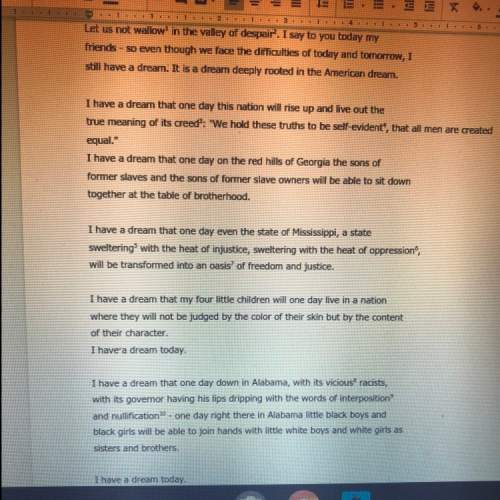
English, 21.10.2020 21:01 SimplyGenesis762
In the book When Breath Becomes Air, Dr. Kalanithi devotes a portion of the book to his journey from the child of devout parents to a man of
science to a cancer patient re-embracing "the central values of Christianity" on his deathbed. Certainly he
is not the first person to detach from the practices of his parents nor the first doctor to decide "all
knowledge is scientific knowledge", as he put it. And of course he is not the only man to embrace religion
at the end of his life.
This appears to be an intellectual issue for him as much as a spiritual one, and he seems to
acknowledge both scientific and faith-based systems are left wanting:
Science may provide the most useful way to organize empirical, reproducible data, but its power to
do so is predicated on its inability to grasp the most central aspects of human life: hope, fear, love,
hate, beauty, envy, honor, weakness, striving, suffering, virtue. Between these core passions and
scientific theory, there will always be a gap. No system of thought can contain the fullness of human
experience.
How does one negotiate this? Is it simply belief vs. answers? Are religion and science really even at
odds? Does Dr. Kalanithi's grappling with these questions as he approaches death give them more
resonance? Can the metaphysical yearning of the quote above be satisfied by marrying science and
religion? Finding it elsewhere? Adding something else? Use specific examples from the text in your
response.

Answers: 3


Another question on English

English, 21.06.2019 17:30
April does not let things interrupt her goals, she just continues on until she gets what she wants. complete, run on or comma splice
Answers: 1

English, 22.06.2019 04:00
Excerpt from 100% - the story of a patriot upton sinclair 10 so peter walked along, with his belt drawn tight, and his restless blue eyes wandering here and there, looking for a place to get a meal. there were jobs to be had, but they were hard jobs, and peter wanted an easy one. there are people in this world who live by their muscles, and others who live by their wits; peter belonged to the latter class; and had missed many a meal rather than descend in the social scale. 11 peter looked into the faces of everyone he passed, searching for a possible opening. some returned his glance, but never for more than a second, for they saw an insignificant looking man, undersized, undernourished, and with one shoulder higher than the other, a weak chin and mouth, crooked teeth, and a brown moustache too feeble to hold itself up at the corners. peters' straw hat had many straws missing, his second-hand brown suit was become third-hand, and his shoes were turning over at the sides. in a city where everybody was "hustling," everybody, as they phrased it, "on the make," why should anyone take a second glance at peter gudge? why should anyone care about the restless soul hidden inside him, or dream that peter was, in his own obscure way, a sort of genius? no one did care; no one did dream. 12 it was about two o'clock of an afternoon in july, and the sun beat down upon the streets of american city. there were crowds upon the streets, and peter noticed that everywhere were flags and bunting. once or twice he heard the strains of distant music, and wondered what was "up." peter had not been reading the newspapers; all his attention bad been taken up by the quarrels of the smithers faction and the lunk faction in the first apostolic church, otherwise known as the holy rollers, and great events that had been happening in the world outside were of no concern to him. peter knew vaguely that on the other side of the world half a dozen mighty nations were locked together in a grip of death; the whole earth was shaken with their struggles, and peter had felt a bit of the trembling now and then. but peter did not know that his own country had anything to do with this european quarrel, and did not know that certain great interests throughout the country had set themselves to rouse the public to action. based on the author's characterization of peter in paragraphs 10, 11, and 12, which word best describes him? a) industrious b) loyal c) patriotic d) poor
Answers: 3

English, 22.06.2019 07:50
How does the reputation of the author convey authority? from ''city upon a hill''
Answers: 3

English, 22.06.2019 10:00
What is the best definition for the phase “ whole cloth forgery “ as used in the article
Answers: 1
You know the right answer?
In the book When Breath Becomes Air, Dr. Kalanithi devotes a portion of the book to his journey from...
Questions

Social Studies, 13.03.2020 23:56

Biology, 13.03.2020 23:56

Mathematics, 13.03.2020 23:56


Mathematics, 13.03.2020 23:56









History, 13.03.2020 23:56

Mathematics, 13.03.2020 23:56

English, 13.03.2020 23:56







